HS-LS2-8
Evaluate the evidence for the role of group behavior on individual and species' chances to survive and reproduce.
-
 Plants
PlantsUrban gardens create a buffet for bees
City gardens provide a huge amount of nectar and pollen for pollinators, making them an essential conservation tool.
-
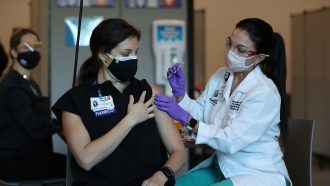
Moderna and Pfizer vaccines appear to cut coronavirus spread
The vaccines are about 90 percent effective at blocking infection, which should cut spread of the virus. And at least one vaccine works well in teens.
-
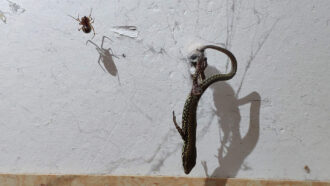
Tiny spider uses silk to lift prey 50 times its own weight
Dropping the right silk let’s a spider haul mice, lizards and other giants up off the ground.
By Susan Milius -
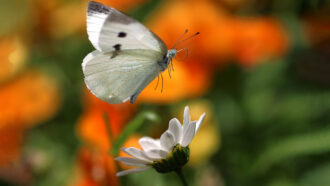 Physics
PhysicsButterflies use jet propulsion for quick getaways
If you have ever tried to catch a resting butterfly, you know they are surprisingly difficult to nab. A new study helps explain why.
-
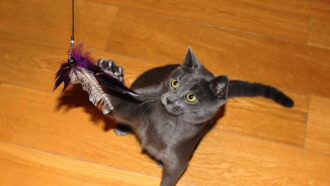 Animals
AnimalsMore playtime and meatier meals might reduce kitty kills
Keeping cats indoors is the best way to prevent them from killing wildlife. But small changes to diet and play can help, too.
-
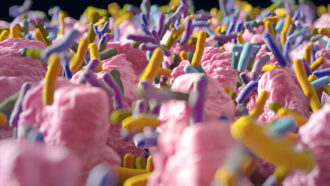 Microbes
MicrobesSome microbial hitchhikers may weaken body’s attack on COVID-19
New research identifies an altered mix of microbes in the body — ones commonly seen in people with poor diets — that may worsen coronavirus disease.
-
 Animals
AnimalsAnalyze This: Some dogs quickly learn new words
Two dogs picked up new words after hearing them a few times during play, but 20 other pets didn’t fare so well at learning the names of new toys.
-
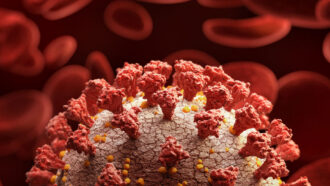 Health & Medicine
Health & MedicineSome young adults will volunteer to get COVID-19 for science
Researchers will soon give some healthy people the new coronavirus. Their young volunteers have agreed to get sick to speed coronavirus research.
-
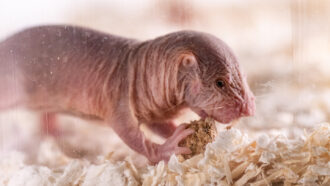 Animals
AnimalsUnique dialects help naked mole-rats tell friends from foes
Computer analysis reveals that these social rodents communicate with speech patterns distinct to each colony.
-
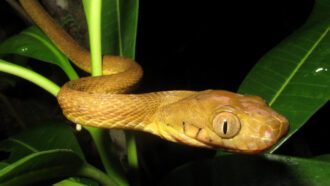 Animals
AnimalsNewfound technique allows some tree snakes to climb wide trees
When a tree is too wide to climb, brown tree snakes use a lasso-like trick to slowly ascend up to snacks.
-
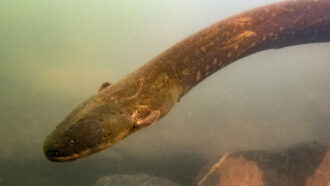 Animals
AnimalsSome electric eels coordinate their attacks to zap prey
Electric eels were thought be to lone hunters — until researchers observed more than 100 eels hunting together. Their coordinated electric attacks corralled prey.
-
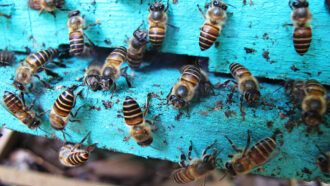 Animals
AnimalsHoneybees fend off deadly hornets by decorating hives with poop
Bees usually collect pollen and nectar. Scientists were surprised to find that Asian honeybees also gather animal dung to defend their hives.
By Asher Jones